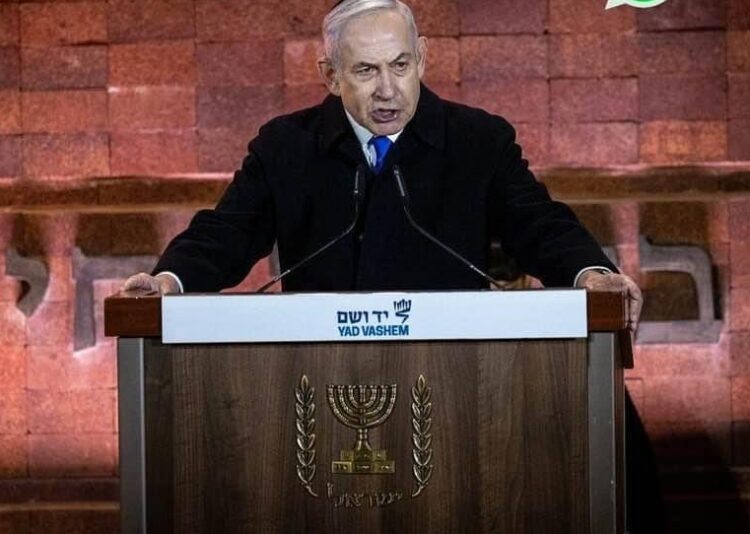Israeli Prime Minister Benjamin Netanyahu delivered a resolute message on Thursday, asserting Israel’s ability to “stand alone” and defend itself if necessary, following warnings from United States President Joe Biden regarding potential limitations on weapon supplies.
Israel 🇮🇱 prime minister @netanyahu:
“In the Holocaust, no nation came to our aid. 𝗜𝗳 𝗜𝘀𝗿𝗮𝗲𝗹 𝗶𝘀 𝗳𝗼𝗿𝗰𝗲𝗱 𝘁𝗼 𝘀𝘁𝗮𝗻𝗱 𝗮𝗹𝗼𝗻𝗲, 𝗜𝘀𝗿𝗮𝗲𝗹 𝘄𝗶𝗹𝗹 𝘀𝘁𝗮𝗻𝗱 𝗮𝗹𝗼𝗻𝗲. We will defeat our enemies. NEVER AGAIN IS NOW.” pic.twitter.com/bMkh0M2o1o
— Dr. Eli David (@DrEliDavid) May 9, 2024
Netanyahu’s remarks came in response to Biden’s caution that the US could halt certain arms shipments to Israel if it initiated a significant ground operation in Rafah. The US had already suspended a bomb shipment amid concerns of civilian casualties resulting from the ongoing conflict.
Referencing Israel’s historical resilience during the War of Independence in 1948, Netanyahu emphasized the nation’s capacity to overcome adversity through unity and determination. He dismissed US warnings, stating that Israel possessed more than mere “fingernails” to confront challenges, alluding to its military capabilities.
Meanwhile, the situation in Rafah remained dire, with reports indicating that over 80,000 people had fled the city since Monday due to relentless bombardment. The UN highlighted the urgent need for humanitarian aid, noting the scarcity of food and fuel for those still sheltering in the area.
Earlier actions by Israel, including the deployment of tanks in Rafah and the seizure of a crucial crossing into Egypt, exacerbated the humanitarian crisis, cutting off vital supply routes for aid and evacuation.
Biden’s remarks underscored growing international concerns over the escalating violence and civilian casualties in Gaza. He acknowledged the role of US-supplied weapons in the conflict and signaled a willingness to reassess arms supply if Israel escalated its military operations in Rafah.
As tensions between the US and Israel persist, the plight of civilians caught in the crossfire continues to worsen, underscoring the urgent need for diplomatic efforts to de-escalate the situation and address humanitarian needs in the region.

















Comments